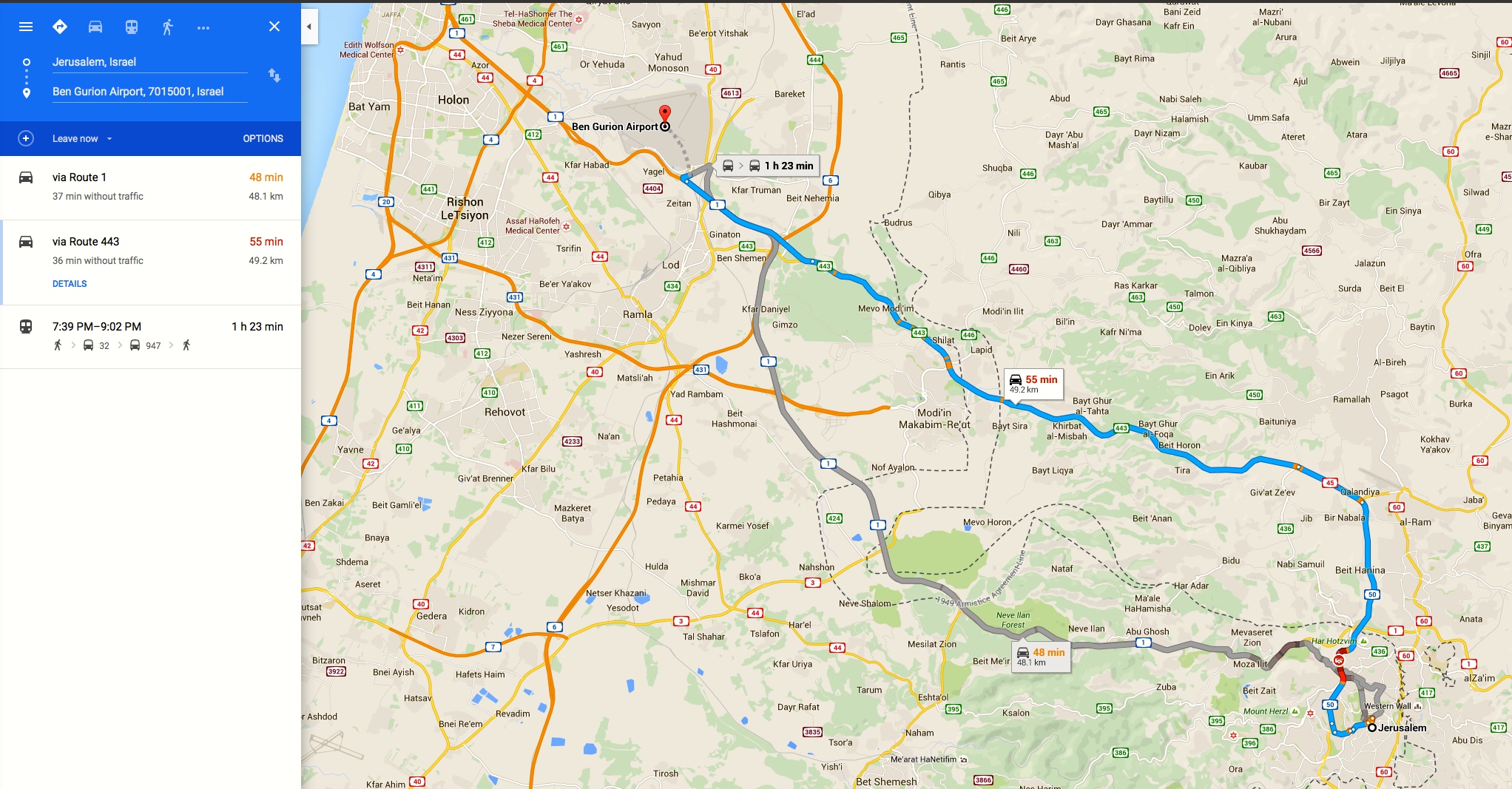http://www.haaretz.com/israel-news/.premium-1.685487
http://www.btselem.org/freedom_of_movement/road_443
Driving in Israel has become an obstacle course of a special kind.
Yesterday afternoon I drove with my 11 year old son from Jerusalem to the airport in Tel Aviv. The taxi driver took route 443, which leads through the West bank. You have to pass through a checkpoint when you leave Jerusalem and enter the West bank and then out of the occupied Palestinian territory into Israel. On the road we saw the wall, which separates West bank and Israel in the borders of 1967 (more or less). It was built in the past decade after the Second Intifada, when Palestinians crossed into Israel to commit suicide attacks.
We looked out on the side of the highway with the wall cutting through the landscape. “Why did they build this wall?” my son asked. “Because the Israelis are trying to prevent terrorist attacks”, I said. “Why do Palestinians want to commit terrorist attacks?”, he asked. “Well”, I said, “ in 1948…” “Mum! No history lesson! Why do the Palestinians want to kill people?” “Because they don’t have their own state”, I said. “You know, there is Israel and there are Palestinian territories which Israel occupies…” “I know, I know, but the Jews needed a state after what happened in the war”, he said. “Right”, I responded. “That is why everyone in the Western world supported Israel. But the Palestinians need a state, too. They lost a big part of their homeland in 1948 and the rest of it in 1967. If they don’t get a state, there won’t be peace.”
“Are we now in the Palestinian territories?”, he asked. “Yes.” “So these are Palestinians villages?” “Yes”, I explained: “Look, you can see if the village is an Arab village: If there is a minaret for example it is Muslim. And the villages have grown over decades, so you can see the irregular structure of the houses. There was no master plan to build them. Often the roof is not finished because Palestinian families like to add another floor for the next generation.” “Then this is not a Palestinian village?”, he asked and pointed to a settlement further away on a hill. “Right, this is an Israeli settlement.” “Why do they build Israeli settlements behind the wall?”, he asked. “Israel started building settlements before they built the wall. And now the settlers have grown to such huge numbers that it is hard to stop building more and more houses for them”, I explained.
My son looked out on the soft hills of the West bank with their olive trees and little walls built from stones. “Isn’t it beautiful?”, I asked him. “Yes”, he replied. We drove down the long winding road towards the plain of Tel Aviv. “This conflict is very complicated”, I said. He replied: “It’s not only complicated, it does not make sense: If you want to keep them out, why build a wall and then build settlements behind it?”
Then we arrived at a checkpoint. A female soldier said to the driver: “Shalom! Ma shlomha!?” “Hi, how are you?”. “Mezuyan”, he responded. “Great”. “Why is she asking him how he is?”, my son wondered. “Because she cannot tell by his looks if he is a local from the Jewish or the Arab side. If he answers with an Arab accent, she might stop us.” “That’s racist”, he said. “Yes”, I said. “The alternative is that we stand at this checkpoint for a few hours until they have checked all cars.” “Better to check everyone”, he responded.
Luckily they did not, so we drove on.
The next day the EU-Commission decided to label products from Israeli settlements separately. The guidelines state that the EU is interested in EU legislation and regulations reflecting the position that according to international law the Israeli settlements on Palestinian territory are illegal.
Israel’s Prime minister Benyamin Netanyahu came out with a harsh statement criticizing the decision: “The EU should be ashamed.” I could not help thinking that he should take a taxi ride with my son on route 443 sometimes.



